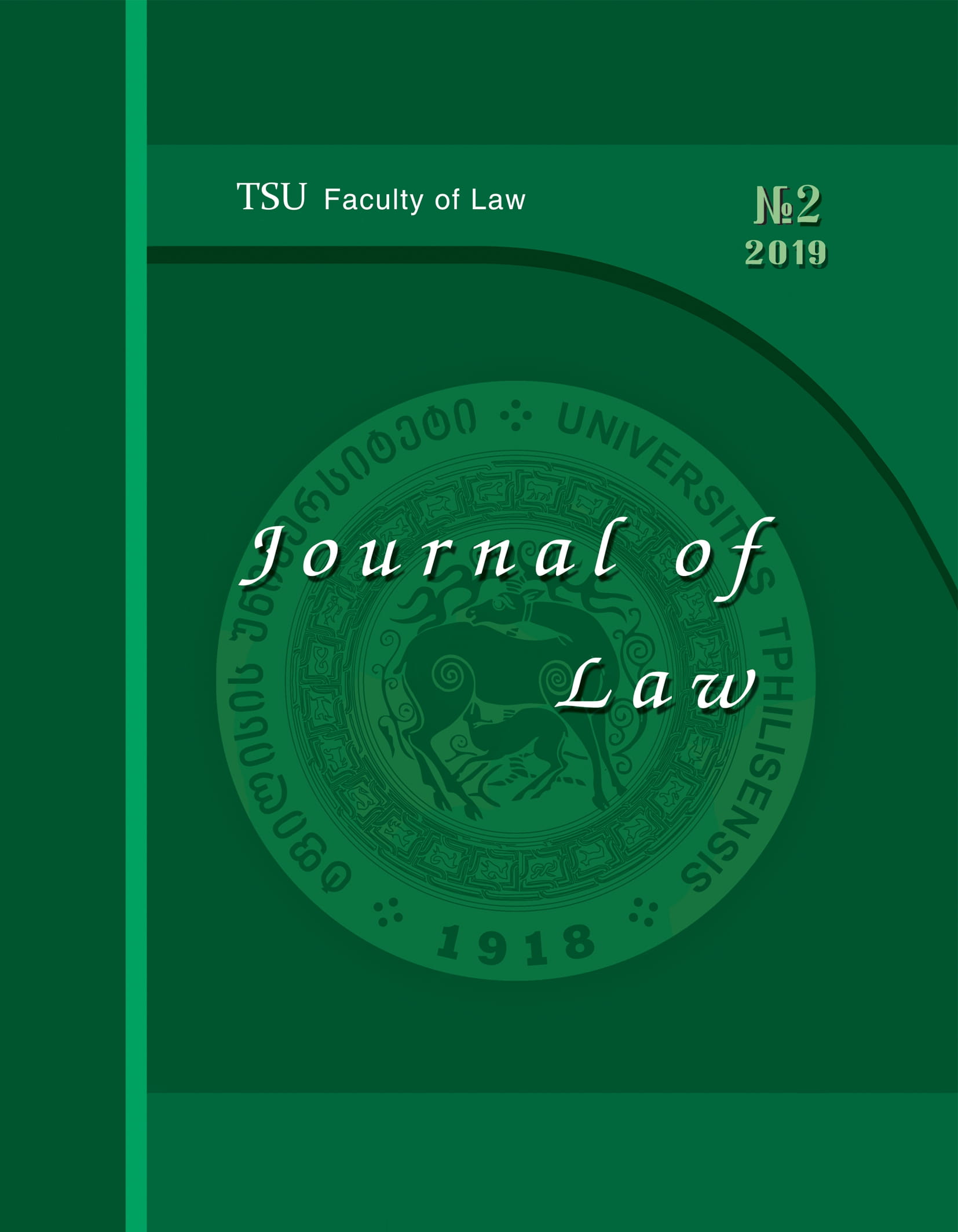The Doctrine of Equivalent Protection - Accessory Conventional Standard for Failure to comply with the European Arrest Warrant
Keywords:
Extradition, the Doctrine of Equivalent Protection, European Union, European Arrest WarrantAbstract
This article reviews the doctrine of equivalent protection, process of its origin and development, sphere of effect and extradition quasi-effects of the spread over the European system. The doctrine of Equal Protection regardless of granting privileges to the European Union and its member states in the European Convention System, it is also conventional mechanism for non-compliance with the European arrest warrant. This, as an instrument enables extradition quasi-European Court of Human Rights shall consider a case in concreto for violation of the European Convention by fulfilling the obligations under the European system, on the one hand and shall impose a responsibility on the Member State of the Union, and the national court shall not enforce the European arrest warrant in accordance with the Convention's standards, on the other hand. Authorial test of non-compliance with the European arrest warrant is proposed in the article based under the doctrine of Equal protection.
References
Pirtskhalashvili A., Mirianashvili G., Human Rights Policy in European Union Law, Tbilisi, 2018, 106-112.
Council Regulation (EC) №2382/96 of 9 December 1996 repealing Regulations (EEC) №990/93 and (EC) №2471/94 and concerning the termination of restrictions on economic and financial relations with the Federal Republic of Yugoslavia (Serbia and Montenegro), the United Nations Protected Areas in the Republic of Croatia and those areas of the Republic of Bosnia and Herzegovina under the control of Bosnian Serb forces.
Council Regulation (EC) №462/96 of 11 March 1996 suspending Regulations (EEC) №990/93 and (EC) №2471/94, and repealing Regulations (EC) №2472/94 and (EC) №2815/95, concerning the interruption of economic and financial relations with the Federal Republic of Yugoslavia (Serbia and Montenegro), the United Nations Protected Areas in the Republic of Croatia and those areas of the Republic of Bosnia and Herzegovina under the control of Bosnian Serb forces.
Council Regulation (EC) №2815/95 of 4 December 1995 suspending Regulation (EEC) №990/93 with regard to the Federal Republic of Yugoslavia (Serbia and Montenegro) and repealing Regulation (EC) №2472/94 (Date of end of validity: 27/02/1996).
Council Regulation (EC) №2472/94 of 10 October 1994 suspending certain elements of the embargo on the Federal Republic of Yugoslavia (Serbia and Montenegro) (Date of end of validity: 22/11/1995).
Council Regulation (EEC) №990/93 of 26 April 1993 concerning trade between the European Economic Community and the Federal Republic of Yugoslavia (Serbia and Montenegro) (Date of end of validity: 02/10/1996).
Council Regulation (EEC) №3534/92 of 7 December 1992 amending Regulation (EEC) №1432/92 prohibiting trade between the European Economic Community and the Republics of Serbia and Montenegro (Date of end of validity: 26/04/1993).
Council Regulation (EEC) №1432/92 of 1 June 1992 prohibiting trade between the European Economic Community and the Republics of Serbia and Montenegro (Date of end of validity: 26/04/1993).
UN Security Council, Resolution №820, 1993.
Christou T. A., Weis K., The European Arrest Warrant and Fundamental Rights: An Opportunity for Clarity, New Journal of European Criminal Law, 2010, 41.
Chronowski N., Integration of European Human Rights Standards - Accession of EU to the ECHR, Law of Ukraine Legal Journal, 2013, 269.
Flaherty J. P., Lally-Green E., Fundamental Rights in the European Union, Duquesne Law Review, Vol. 36, 1998, 313.
Hert P., Korenica F., Doctrine of Equivalent Protection: Its Life and Legitimacy before and after the European Union’s Accession to the European Convention on Human Rights, German Legal Journal, Vol. 13, 2012, 875, 879, 880, 883, 886-887, 894.
Hoffmeister F., Bosphorus Hava Yollari Turizm v. Ireland, App. №45036/98, American Journal of International Law, Vol. 100, 2006, 447.
Kuhnert K., Bosphorus - Double Standards in European Human Rights Protection?, Utrecht Legal Review, Vol. 2, 2006, 188.
O' Meara N., More Secure Europe of Rights - The European Court of Human Rights, the Court of Justice of the European Union and EU Accession to the ECHR, German Legal Journal, Vol. 12, 2011, 1817.
Pirozzi v. Belgium, №21055/11, 2018.
Bosphorus Hava Yolları Turizm ve Ticaret Anonim Şirketi v. Ireland, №45036/98, 2005.
Beer & Regan v. Germany, №28934/95, 1999.
Matthews v. The United Kingdom, №24833/94, 1999.
Waite & Kennedy v. Germany, №26083/94, 1999.
M. & Co. v. Federal Republic of Germany, №13258/87, 1990.
Bosphorus Hava Yollari Turizm ve Ticaret AS and Minister for Transport, Energy and Communications, Ireland and the Attorney General, Case №84/95, 1996.
Kingdom of Spain v. United Kingdom of Great Britain and Northern Ireland, Case №145/04, 2006.
Hauer v. Land Rheinland-Pfalz, Case №44/79, 1963.
BVerfGE 73, 339 2 BvR 197/83 Solange II-decision, №197/83, 1986.
Downloads
Published
How to Cite
Issue
Section
License

This work is licensed under a Creative Commons Attribution-ShareAlike 4.0 International License.









